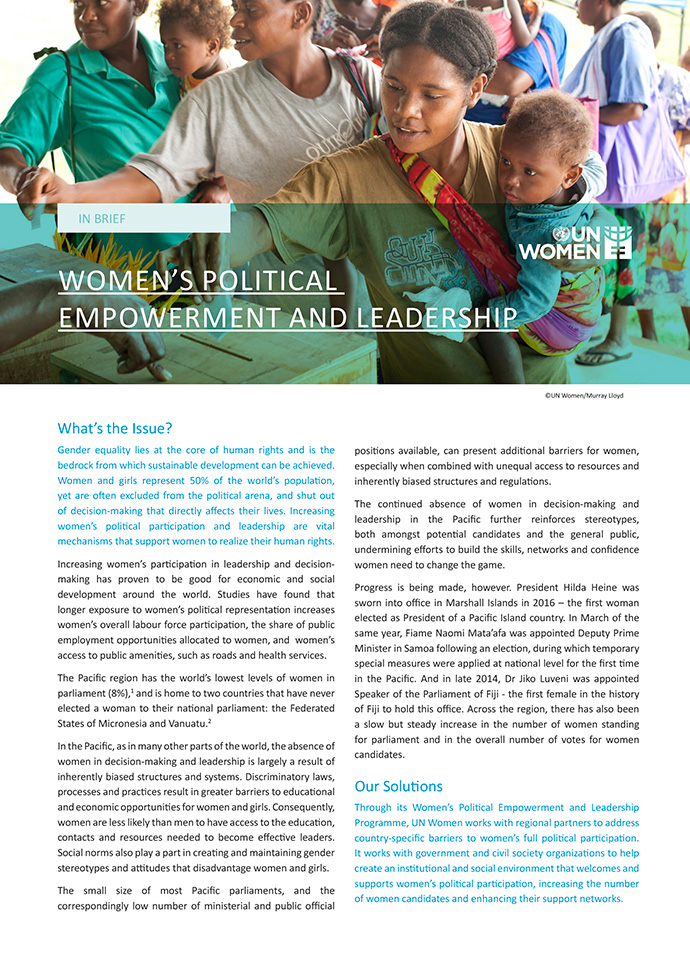
Women's Political Empowerment and Leadership

PROGRAMME BRIEF
Gender equality lies at the core of human rights and is the bedrock from which sustainable development can be achieved. Women and girls represent 50 per cent of the world’s population, yet are often excluded from the political arena, and shut out of decision-making that directly affects their lives. Increasing women’s political participation and leadership are vital mechanisms that support women to realize their human rights.
Increasing women’s participation in leadership and decision- making has proven to be good for economic and social development around the world. Studies have found that longer exposure to women’s political representation increases women’s overall labour force participation, the share of public employment opportunities allocated to women, and women’s access to public amenities, such as roads and health services.The Pacific region has the world’s lowest levels of women in parliament (8 per cent),1 and is home to two countries that have never elected a woman to their national parliament: the Federated States of Micronesia and Vanuatu.
In the Pacific, as in many other parts of the world, the absence of women in decision-making and leadership is largely a result of inherently biased structures and systems. Discriminatory laws, processes and practices result in greater barriers to educational and economic opportunities for women and girls. Consequently, women are less likely than men to have access to the education, contacts and resources needed to become effective leaders. Social norms also play a part in creating and maintaining gender stereotypes and attitudes that disadvantage women and girls.
The small size of most Pacific parliaments, and the correspondingly low number of ministerial and public official positions available, can present additional barriers for women, especially when combined with unequal access to resources and inherently biased structures and regulations.
The continued absence of women in decision-making and leadership in the Pacific further reinforces stereotypes, both amongst potential candidates and the general public, undermining efforts to build the skills, networks and confidence women need to change the game.
Progress is being made, however. President Hilda Heine was sworn into office in Marshall Islands in 2016 – the first woman elected as President of a Pacific Island country. In March of the same year, Fiame Naomi Mata’afa was appointed Deputy Prime Minister in Samoa following an election, during which temporary special measures were applied at national level for the first time in the Pacific. And in late 2014, Dr Jiko Luveni was appointed Speaker of the Parliament of Fiji - the first female in the history of Fiji to hold this office. Across the region, there has also been a slow but steady increase in the number of women standing for parliament and in the overall number of votes for women candidates.